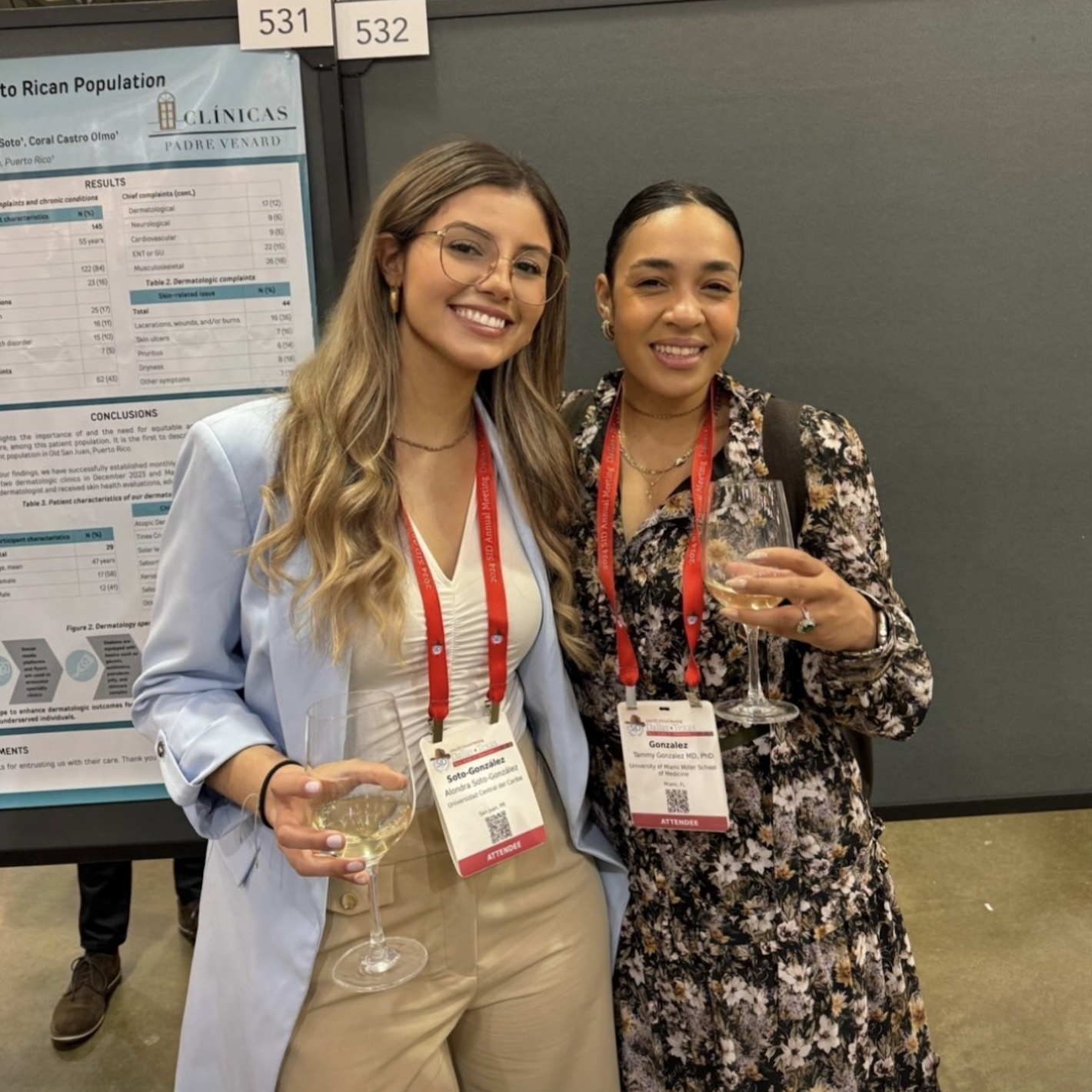
Mentee: Alondra Soto-González
Mentor: Tammy Gonzalez, MD, PhD
University of Miami
I had the privilege of being mentored by Dr. Tammy Gonzalez, MD, PhD, a distinguished research track resident at the University of Miami. Thanks to the SOCS Mentorship Program, she was one of the first individuals I connected with in the field of dermatology and has been a powerful example of representation and possibility. As a Puerto Rican aspiring dermatologist, having a mentor who shares my cultural background has made this journey even more meaningful. Her guidance has been instrumental in helping me feel capable, resilient, and supported as I pursue my professional goals.
Throughout the program, we engaged through phone calls, messages, and in person during the Society for Investigative Dermatology and American Academy of Dermatology meetings. These experiences allowed me to connect with leading experts, present my research, and strengthen my commitment to advancing diversity and representation within the field. Dr. Gonzalez consistently encouraged me to step outside of my comfort zone, pursue new professional development opportunities, and expand my network within dermatology, particularly within Skin of Color initiatives.
With her guidance and help, I secured a research fellowship position at the University of Pennsylvania—the top dermatology program in the country—under the mentorship of Dr. Chiesa Fuxench, focusing on inflammatory skin disorders and epidemiology. This opportunity was further supported by a grant from the American Academy of Dermatology covering my living expenses. Dr. Gonzalez also encouraged me to continue leading my passion projects, including coordinating dermatology clinics for the houseless and racially diverse population in Puerto Rico—a community I have been committed to serving since 2019—and launching a community-centered study to address barriers to healthcare access.
The SOCS Mentorship Program profoundly strengthened my interest in Skin of Color dermatology by exposing me to critical conversations, mentorship, and research efforts that prioritize equitable care for diverse populations. It reaffirmed my dedication to ensuring that dermatologic education, research, and clinical care meet the needs of all skin types, colors, and backgrounds.
Meeting Dr. Gonzalez had a profound impact on my early career, empowering me to develop the skills needed to mentor and uplift others. I aspire to follow her example of excellence, compassion, and leadership while creating new pathways for diverse students in medicine. I am deeply grateful for the invaluable mentorship, opportunities, and inspiration this program
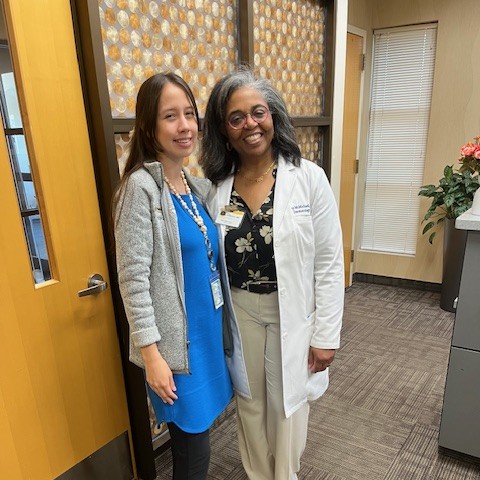
Mentee: Emily Balding
Mentor: Amy McMichael, MD
During the mentorship program, my mentor and I met approximately every three months via Webex for about 30 minutes. At these meetings, I was able to seek her counsel and advice regarding research, conferences, away rotations, and other derm-related opportunities. I was also able to update her on the progress I had made regarding previous things that we had discussed. This model helped to keep me accountable as I prepared for each meeting, making sure that I was staying on top of my goals and following through on what I had committed to. Through my mentor, I was able to join another student and a research fellow who were working on a case series regarding the trichoschopic findings of alopecia areata in patients with skin of color. This research project helped me to both grow in my understanding of skin of color and alopecia as well as further develop my research skills.
Our manuscript was recently accepted for publication! Furthermore, my mentor helped me to formulate my own research project based on my interest in hidradenitis suppurativa (HS). This project has since evolved into two manuscripts based on a retrospective chart review, for which our IRB was recently approved. We are also planning to conduct a prospective study to evaluate the qualitative impact for patients of surgical management for HS lesions. My mentor was also able to give me personal advice on how to strengthen my application for residency, including focusing on meaningful contributions to the organizations I was already involved with rather than simply having a title. I was also encouraged to become more involved with our home dermatology program, including attending biweekly case conferences and the quarterly meetings - opportunities I had not been aware of. Most importantly, I have developed a strong relationship with my mentor through our time together and felt comfortable asking her to continue meeting informally during my fourth year. Altogether, I know that my journey toward dermatology has been immensely benefited by my SOCS mentorship experience.
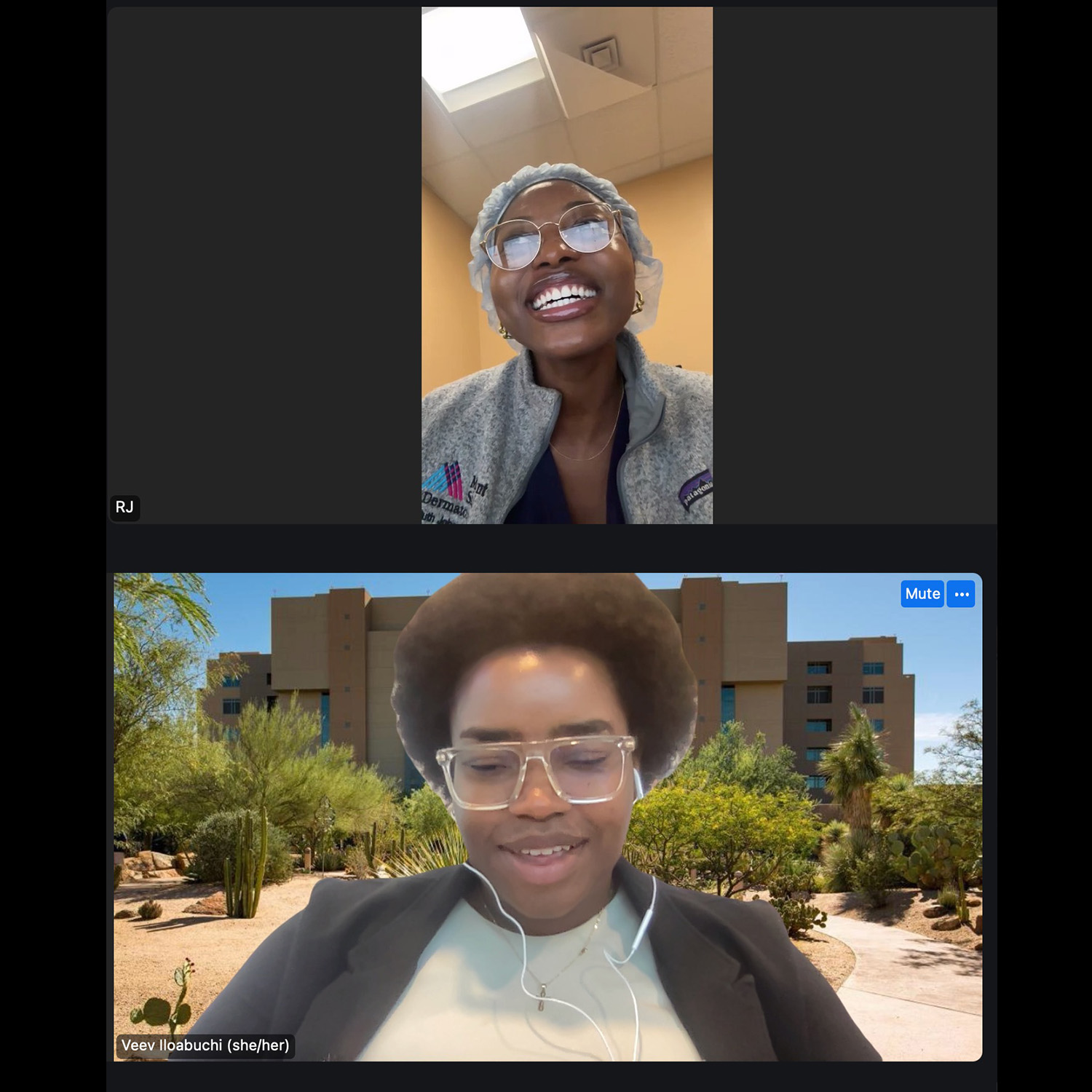
Mentee: Vivian Iloabuchi
Mentor: Ruth Jobarteh-Williams, MD
I am thankful for the opportunity to have participated in the 2024–2025 Skin of Color Society (SOCS) Mentorship Program. This was an incredibly meaningful and affirming experience during a critical stage in my medical training. As a third-year medical student thinking of how to balance my clinical rotations with my interest in dermatology, this program provided timely mentorship, expanded my professional network, and deepened my commitment to equity in dermatologic care.
Although I was not able to meet my mentor in person, our virtual conversations were thoughtful and practical. Dr. Jobarteh-Williams offered strategic advice on applying for away rotations, emphasized the importance of applying early, and shared how to demonstrate sustained interest in my home program. I also appreciated her encouragement around my growing interest in pediatric dermatology as I was able to share my project ideas and she affirmed their relevance within the field. Additionally, she advised me to be proactive in networking, especially at conferences. She encouraged me to identify people I wanted to meet well in advance and schedule one-on-one meetings before arriving.
Dr. Jobarteh-Williams also connected me to her colleagues in academia and I got the chance to meet them at conferences like the 2024 Skin of Color Update and the 2025 American Academy of Dermatology Annual Meeting. These experiences allowed me to feel rejuvenated and continue putting my best foot forward. Listening to experts share their clinical experiences, research, and personal journeys made a lasting impression. I was especially moved by conversations around gaps in care for patients with skin of color and the innovative work being done to address them. I also had the opportunity to meet like-minded peers, which further expanded my perspective on the variety of ways to explore my interest in dermatology.
Overall, this program helped solidify my interest in pursuing a dermatology career rooted in advocacy, mentorship, and health equity. I’m deeply grateful to the Skin of Color Society for creating spaces where underrepresented trainees can find guidance, connection, and inspiration. I look forward to remaining engaged with SOCS for years to come.
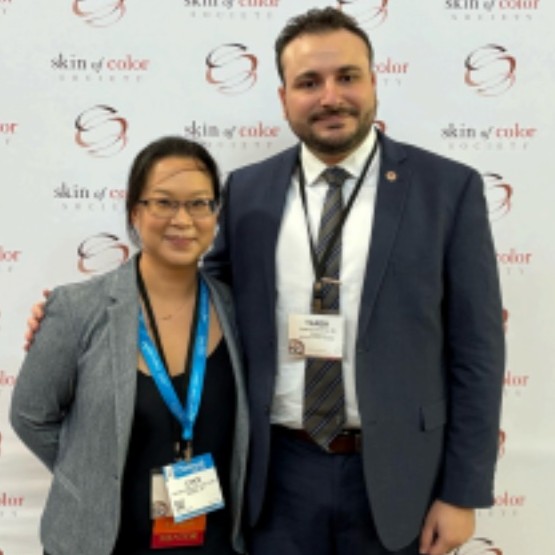
Mentee: Tarek Dawamne, BS
Mentor: Olivia Choi, MD, PhD
The Skin of Color Society (SOCS) mentorship program has been the most impactful mentorship experience I've participated in. As a first-generation immigrant, I've consistently relied on mentors and their guidance in navigating my journey. Specifically, the SOCS mentorship program's flexible communication structure, with minimal formal requirements, allowed for a highly personalized and effective mentor-mentee relationship. In my experience, this autonomy facilitates the best outcomes.
Dr. Olivia Choi, my mentor, is an absolute gem of a person, physician, and scientist. Upon receiving our mentor-mentee pairing email, she immediately reached out to schedule a Zoom meeting. During our initial conversation, we discussed my journey and goals. After sharing her own experiences, she proactively offered various research and networking opportunities, and helped me establish a timeline for my away rotation applications. Dr. Choi was consistently available to answer my questions about these applications and shared in my excitement when I received offers. Her advice during away rotations was invaluable in guiding how I presented myself. During application season, her feedback on my application and personal statement was extremely helpful, significantly strengthening my application and assisting me in setting up my signals. After application season, she continued to support me by arranging mock interviews and providing constructive feedback. At the same time, she facilitated my involvement in research projects and networking events. All of these efforts culminated in the SOCS meeting in March, where we had the opportunity to meet in person for the first time and present one of the projects we worked on together regarding the effects of post inflammatory pigmentation alteration on patients with skin of color. Even when I did not match into dermatology, she remained incredibly supportive and helped me outline my next steps. Throughout the entire year, Dr. Choi was nothing but sincere, supportive, and encouraging. We remain in contact today, and I continue to seek her invaluable advice. If an award existed for the best mentor, she would undoubtedly be the top candidate.
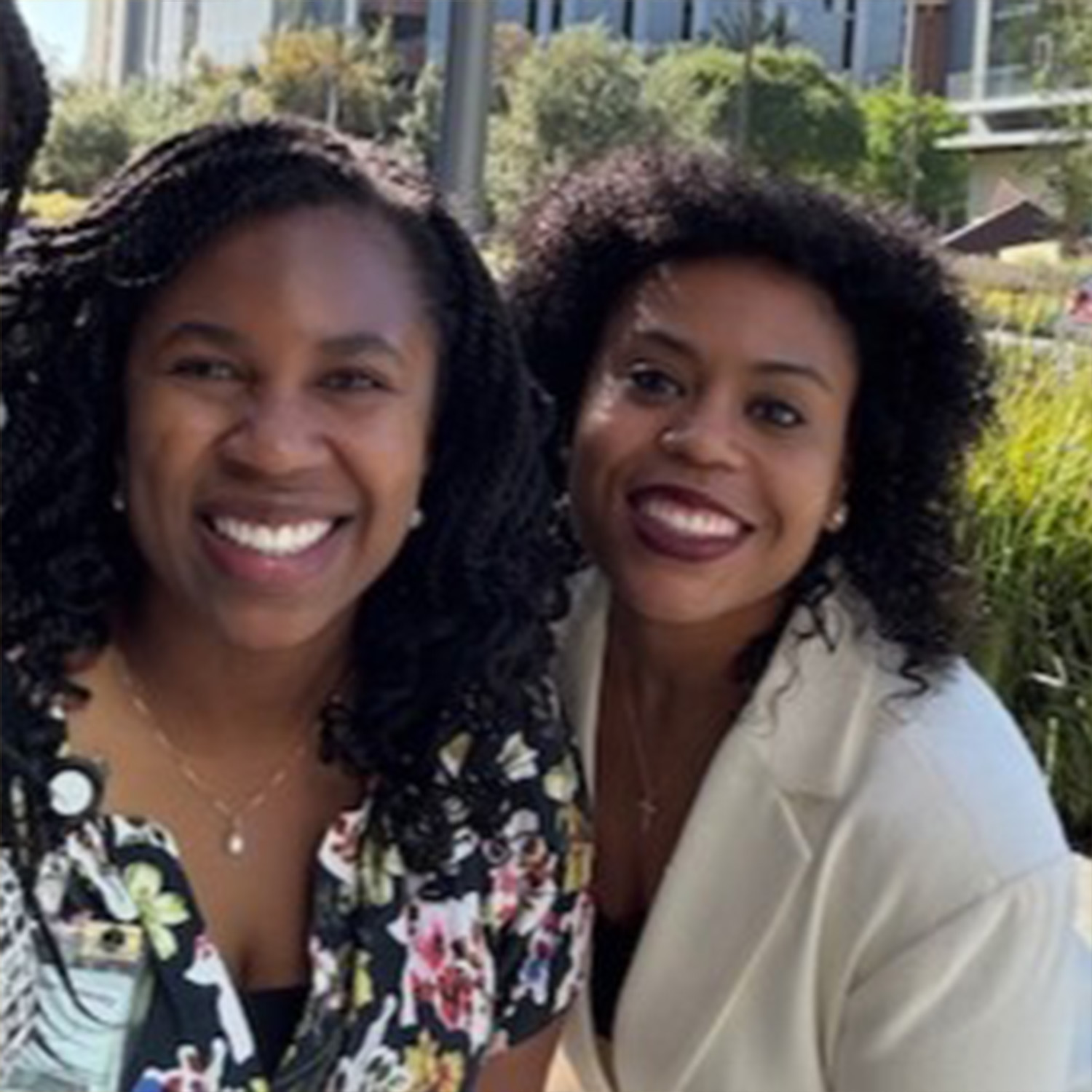
Mentor Leandra Barnes, MD with mentee Brianna Camera Watson, BS
Stanford University
My experience at Stanford Dermatology working under Dr. Leandra Barnes was a fantastic experience. As a mentor, Dr. Barnes spent this month getting to know me as a mentee and helping me navigate the field of dermatology, especially as a rising third-year medical student. She gave life-changing advice and support about topics outside of medicine, such as living in the opposite country from my family; tips on organization, especially regarding research; or even new foods to try at Trader Joe's. It meant a lot that she took the time to learn who I was and my passions and motivations. Despite being her busy schedule, she always made me feel that my conversations with her were a priority rather than a burden. By the end of my time at Stanford, I had developed a genuine and lifelong relationship with Dr. Barnes, and for that, I will always be grateful.
Some of my favorites were observing Dr. Barnes in the Skin of Color Clinic and during her days in dermatology surgery. The Hidrentitis Suppurtiva Clinic really drove home the importance of my research project, while the days on Dermatology Surgery highlighted my passion for wound healing. I love dermatology surgery and will pursue this field as my career. We had a great case where most of the posterior scalp was deroofed due to Acne Keloidalis Nuchae. I presented this case and another one at Grand Rounds, which the residents and faculty received very well. I received compliments on the presentation for my final week and a half at Stanford. However, I also want to highlight the importance of Dr. Barnes' mentorship in my successful presentation. She ensured that I was well prepared by setting aside multiple times to go through the presentation and a four-hour block to review presentations. The guidance on how to do a successful Grand Rounds presentation is a tool that I will continue to carry with me.
The organization of my time at Stanford was a mixture of working on my research project and observing a variety of clinics. Dr. Barnes ensured to create a schedule that allowed me to be exposed to areas of dermatology that I had no previous knowledge of. This exposure was a blessing and allowed me to hone my passions and career possibilities that I had not thought of before my experience. For example, I got to rotate in the vulvar dermatology clinic. It was an incredible experience to work with a pioneer in the field who gave so much advice and support. Also, I got to experience the supportive dermato-oncology department, which was unique. Learning about the types of rashes that certain chemotherapies can cause is knowledge I would not have acquired this early in my career if I had not had this exposure.
Outside the clinic, Dr. Barnes allowed us to attend the Karasek Lecture, where all the Dermatology faculty presented their research. It was a great way to learn about the work in the labs at Stanford and present a poster on the Skin of Color Program at Stanford. This was also a great opportunity to network and meet people in the department. Also, we attended the Stanford Health Fair, where we presented another poster. I met one of the VA dermatologists there, and she allowed me to shadow her during my last week. This meant so much to me because I am a VA scholar and will be working in a VA after residency, and I have never rotated in a VA facility. Thus, I got a glimpse about into what my life as a VA dermatologist will be like in the future. I loved my time at the VA, and my mom said she had never heard me be so excited; this confirmed that I chosen the right career path.
I would like extend a heartfelt thank you to the Skin of Color Society, Dr. Barnes, and the Stanford Department of Dermatology for the experience of a lifetime.